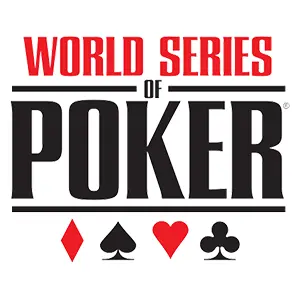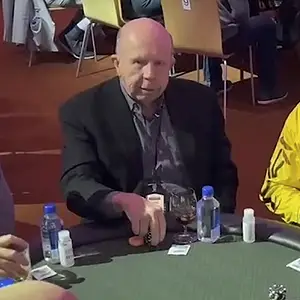Jack Binion Gets Forced Out

In 1998, the number of entrants to the main event leapt to 350 players. The final three were Scotty Nguyen, T.J. Cloutier, and newcomer Kevin McBride. Nguyen, who would win over $11 million in tournament poker and five WSOP bracelets, almost didn’t make it to the tournament. After running his bankroll up to a million dollars, he experienced a streak of bad luck. With less than $700 to his name, he borrowed a little over $300 from Mike Matusow to enter a satellite tournament. Winning the satellite, he aimed to become the second consecutive champion staked by someone else, following Stu Ungar.
Once play became three-handed, Cloutier hoped to face the rookie McBride, who played a loose, passive style. However, Nguyen had position on McBride and used it to full advantage, continuously betting or raising and forcing Cloutier to fold. After Cloutier lost a third of his stack, he finally shoved on McBride. Kevin called with a draw and got lucky, knocking Cloutier out.
Nguyen and McBride then faced off, with McBride holding a 2-to-1 chip lead. Despite this, Nguyen’s superior skills shone through. McBride’s passive play allowed Nguyen to chip away at his stack. In the final hand, with a full house on the board (99888), Nguyen told McBride that if he called, it would be over. McBride called, playing the board, but Nguyen’s nine gave him a better full house. Nguyen took the title and a million-dollar prize, along with $30,000 in silver bars.
Internal family struggle

After almost 30 years of involvement and being the main force behind the World Series of Poker for over half that time, Jack Binion was excluded from the operations in 1999 due to an internal family struggle. This led to a boycott by big-name players like Doyle Brunson in protest.
Jack, however, was not out of the gaming business. He had formed his own company and expanded beyond Las Vegas. Some business decisions, such as buying a casino in Illinois without obtaining a gaming license, did not pan out well.
His sister Becky took over the WSOP, disappointing many players, especially those close to Jack and Benny Binion. Benny had started the family business in the 1940s, building it into a major gambling empire. He groomed Jack for leadership from a young age, and Jack had rescued the family casino in the 1950s after Benny’s tax evasion conviction. Despite Jack’s dedication, control of the WSOP slipped from his grasp.
Signs of decline
The 1999 WSOP showed signs of decline, with increased disputes at both the WSOP and the Horseshoe Casino. Despite the protests, the main event grew to almost 400 entrants. The top three featured two Irish players, professional Padraig Parkinson and amateur Noel Furlong, along with former junk bond trader turned poker pro Alan Goehring.
Noel Furlong, a carpet manufacturer, confined his play to major tournaments. He had been competing in the WSOP since 1989, finishing sixth in the main event on his first try. Furlong also won the Irish Poker Open twice.
Final table showdown
Padraig Parkinson was the first of the three to fall, losing to Furlong. Furlong and Goehring then faced off, starting with similar chip stacks. Furlong played aggressively, establishing a big chip lead. With a 3-to-1 advantage, Furlong put Goehring in a tough spot with a $300,000 min-raise on the turn with pocket sixes on a Queen of Any ColorQueen of Any Color5 of Any Color2 of Any Color board. Goehring, pot-committed, called Furlong’s shove, only to see Furlong’s pocket fives for a full house. The river card did not help Goehring, and he settled for the runner-up share of $768,625. Furlong claimed the million-dollar prize, marking another memorable year in the WSOP’s history.
World Series of Poker history
- The Beginnings
- Things Start Taking Off
- The Roaring Eighties
- The Early Nineties
- Silver Bars To The Comeback Kid
- Jack Binion Gets Forced Out
- The New Millenium
- The WSOP Gets Its World Rocked
- Harrah’s Takes Over
- The WSOP Moves To The Rio
- The WSOP Grows One More Time
- The Empire Strikes Back
- The November Nine Begins
- Once In A Blue Moon
- The 2010 Championship
- The 2011 WSOP Final Table Preview
- The 2011 WSOP Championship
- The 2012 World Series Of Poker
- The 2012 WSOP October Nine